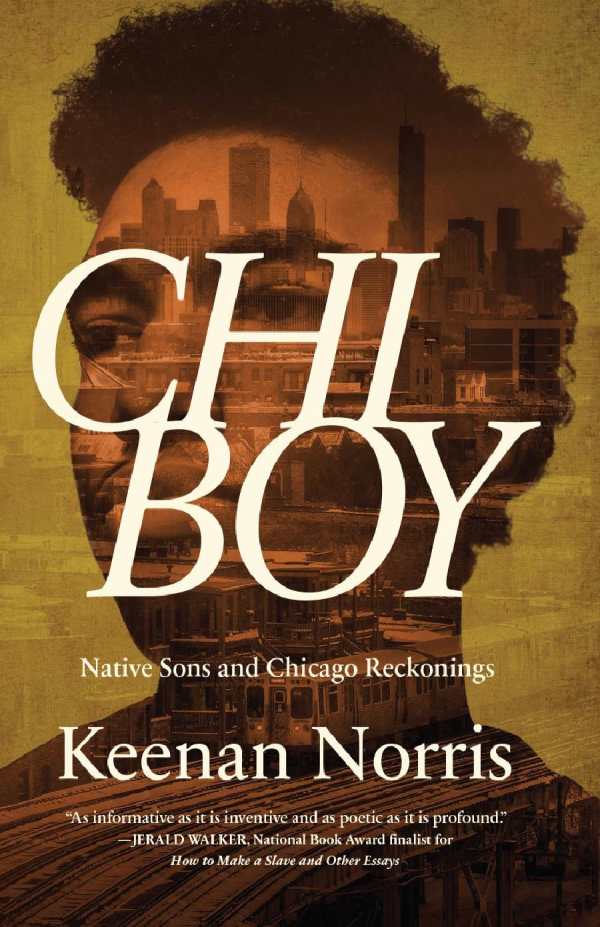Chi Boy
Native Sons and Chicago Reckonings
Held together by references to Chicago, Keenan Norris’s Chi Boy is a memoir, a social history, a eulogy for his ancestors, and a tribute to inspiring literary men.
Jim Crow racism drove Norris’s family north, landing them in segregated Chicago where opportunities were few and poverty was extensive. Arriving after World War II ended, they took whatever jobs were available to people of color and raised their children in cramped, rodent-infested apartments. Domestic violence, alcoholism, and infidelity were part of the social fabric, but so were books.
Black writers including James Baldwin, Frank Marshall Davis, Ralph Ellison, and Richard Wright sustained Norris’s father. He passed his love of literature on to his son. Later, Barack Obama, another Chicagoan, gave the Norris’s new perspectives to consider, fueling debate about America’s promise of equal opportunity.
Ongoing discussions fired the younger Norris’s imagination. Here, he interrogates the works of the aforementioned writers, all of whom lived in Chicago themselves. He deconstructs their work with an eye toward period, place, and social conditions, zeroing in on the milieu that influenced each author’s work. In addition, their personal foibles are highlighted.
The result is a fascinating exploratory text that includes numerous, seemingly unrelated themes. Among them is the Norris family story—the narrative’s frame, which is illustrated with anecdotes about Norris’s Grandfather Bill’s decision to leave the South and his father, Butch’s, coming-of-age. Norris juxtaposes acclaimed writers with men who mattered in their circles but lacked fame. That it works is a testament to Norris’s skill as a writer and his ability to thread racial prejudice into each rendering—a commonality that links these portraits, whether their subjects entered society’s upper echelons or not.
Chi Boy is clear in its denunciations of white supremacy and the lies that sustain it.
Reviewed by
Eleanor Bader
Disclosure: This article is not an endorsement, but a review. The publisher of this book provided free copies of the book to have their book reviewed by a professional reviewer. No fee was paid by the publisher for this review. Foreword Reviews only recommends books that we love. Foreword Magazine, Inc. is disclosing this in accordance with the Federal Trade Commission’s 16 CFR, Part 255.

